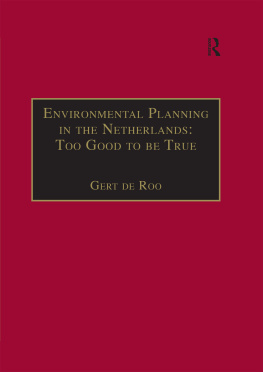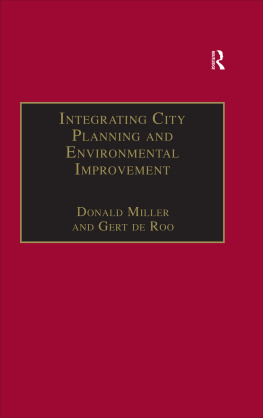Gert Jonke
Awakening to the Great Sleep War
Everyone stands alone on the heart of the earth,
Transfixed by a ray of sunshine: And suddenly it is night.
Salvatore Quasimodo
Today, Sisyphuss vacation came to an end.
Alejo Carpentier
Human existence being an hallucination containing in itself the secondary hallucinations of day and night (the latter an insanitary condition of the atmosphere due to accretions of black air) it ill becomes any man of sense to be concerned at the illusory approach of the supreme hallucination known as death.
De Selby
In the morning, that city is usually enveloped by a low-lying cloud, from which it slowly and with great difficulty extricates itself, and depending on the varying requirements of the day, it ascends at least three or five meters, yes, even as high as seven or nine meters up the air-arena stairwell, into the sublime midmorning.
By noon, however, this dignified stance has already become too uncomfortable for it, so it drifts surreptitiously down to its customary altitude, so that, once there, it can lean back into the comfortable afternoon, over the course of which it will of course still have to put up with just about everything imaginable, till long into the evening, when it pulls the evenings gray pelt up over its ears before sinking further down, several meters, crumbling away through the porous, moth-eaten skin of the plains, as if its houses were being suctioned away, so that only the pointed tops of a few chimney toques still peep out, only the wings of a few helplessly fluttering rooftops still sail swaying over the spring tides of twilight it has fallen in on itself, leaving deep furrows, and there is a barely audible rustling sound as the city slips away from the eye of the beholder, glittering as it goes.
In the morning, the walls blow their noses, hanging their bleary-eyed bedding out the windows, the roof trusses cough through asthmatic chimneys, and some buildings sneeze through their opened skylights; now and then an entryway shoves its stairwell, bursting with stairs, out onto the street, and sometimes entire suites of rooms are pushed out through their walls into public places, while the cellars press down on their heaps of potatoes, preventing them from rising up in rebellion when the countless coal sacks, filled to bursting, blow gobs of smog into the public transit system through the bars on the window.
Some days the buildings pull in their protruding bay-window stomachs and bashfully fold back their elegantly pointed balcony breasts, as if obeying an order to stand at attention with their mortar smoothed flat and their walls erect, because the municipal authorities, that is, their superiors, the towers, have come to report on them, have donned their clockwork cupolas and are wearing the marshals baton tips of their weathercockscomb teeth up on their belfries.
Some days the streetcar tracks spring out of the asphalt, shake off all those annoying stops, and move their terminals several meters up into the air.
What were you looking for in that city, Burgmller?!
In that city, some nights moor their black sailing fleets so firmly to the buoys of the church steeples that theyre still there the next day, far above the heads of the townspeople, the dust swarms of their thick night-bird shadows drawing curved lines in the air, passing through the walls of our airspace-vault, as well as its ceiling fresco.
What did you lose in that city, Burgmller?!
Yes, the days in that city were sometimes invasions of sunbeams pushed out of the nights, their explosive fields of flowers shot up from the first light of dawn, the rain of their petals cascading down from the galleries of air, pulsating with streams of budding light, accompanied by the vapor-lined sultriness of dark, padded storm attics their bolts bundled together into a rigidly frozen burning fountain of woven lightning; one was thoughtfully offered shelter beneath the fountain, and in order to stay for just a short time (no longer than necessary), people like Burgmller hid from it on those islands that drifted through the river until, tired of being inhabited, they evaporated.
Burgmller wasnt the only person to pass through such days as though moving down an interminable tunnel of light that had been placed over everything, its woven sunbeam runnels brushing very slowly over the city, close enough to be felt, like a cloth made of air, like an extremely thin condom that might burst at any moment if the buildings continued to act up in this fashion: in the process of greeting each other by raising their roof-truss hats, they were hurling their brick-patterned caps so far above their firm, streamlined walls that they got lost in the wind.
It wasnt just on days like this that Burgmller had withdrawn, of late.
Because he had already made the acquaintance of those remarkably different beings who inhabited the city, had been involved in intensive discussions with them for a long time now, had become increasingly fascinated with them, hoping to fathom the various modes of their existence, which he tried, futilely, to comprehend in every detail, together with the world in which they lived, and definitely also moved, although at an apparent standstill.
But how had it all begun? Had he simply stood there and called out to them, You! hey, you there!? No, he would have considered that tactless, pushy; instead, one day, he felt something come up and touch him from behind, without warning, and he turned around, but saw nothing. The only glance cast at him came from the ossified face of a woman of stone, a caryatid, her hands propping the balcony of a building up against the sky in such a way that she could also have been thinking of throwing it. He knew for certain that only she could have attracted his attention in so threatening a manner; Burgmller was about to answer in the same tone of voice, to forbid that sort of treatment and demand an apology, when he thought or felt that there was an entire congregation all around him, a crowd blocking his way and even laughing at him from underneath archways, windows, oriels, and other parts of the faade of a long building, whose very marble began to tremble gently. When Burgmller asked what the reason was for their mockery, which was obviously directed at him, they replied, no, it wasnt mockery, it was joy, satisfaction, because with him, for the first time in several decades, they had at last found someone who was able to sense a little of their conversation, of how they occupied themselves, of what their days entailed, of their wallseasoncalendar plans, of their buildingfront epochs, etc., what a happy coincidence, and at that he and they decided to meet each other daily; yes, please come tomorrow, all of you, to my apartment, Burgmller suggested happily to the caryatids and atlantes which is what the male columns called themselves and of course they would always be most warmly welcome at his place, in future he hoped as many of them as possible would swing by, any time was fine, he would always welcome a visit from the telamones which is what all of them together called themselves at any moment, because their friendship would brighten the twilit loneliness of his quiet rooms!
But unfortunately they didnt give him a single opportunity to wine and dine them, if discreetly, with his meager hospitality, because of course they never went to his apartment; it would just have been too difficult, for a number of reasons, but above all it would have taken too long.
Instead, he went to visit them regularly, questioned them about the composition of their world, their worldviews, their ideas about existence, and about the course of their walled-up everyday life.
How did they manage to communicate?
On the one hand Burgmller spoke as slowly as possible, with pauses between each word, between each syllable, if possible intervals of several seconds, so that they were able to hear or understand everything he said or asked, even if he spoke quietly, barely audibly, or often just thought; while on the other hand, their utterances took the form of a not-really describable nor closely definable trembling of the light in the airspace immediately around their figures: Burgmller thought he heard it very quietly, at least he thought he understood the meaning of it, because hearing probably wasnt the right word for it, although each of their sentences did seem to be infinitely slowly and carefully spelled and then spoken, if it could even be called speaking, no, speaking wasnt a suitable word either, not for this type of communication those veins of light that flashed through the thin, perhaps whispering, nearly invisible blurring of the air that very quietly surrounded their figures, that buzzing of their heads which expressed itself in a manner that was obviously just barely perceptible: when Burgmller listened to the telamones, it often seemed to him













